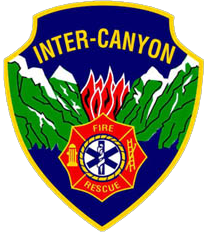Electrical Safety
Each year in North America, hundreds of people die and thousands more are injured in accidents involving electrical fires or shocks. Most of these incidents can be prevented by following simple electrical safety rules.
Fuses and Circuit Breakers
- If a fuse blows or a circuit breaker is tripped, don’t just replace or reset it. Find out what caused the circuit overload andcorrect the problem.
- Never replace a fuse or circuit breaker with one that exceeds the amperage rating for a given circuit.
- Avoid using several high-amperage appliances-such as irons or other heat-producing appliances-on the same circuit.
- Never replace a fuse with a penny or any other material that conducts electricity.
GFCI
GFCI stands for ground fault circuit interrupter, an electronic device that constantly monitors the amount of current flowing through a circuit and cuts off the electricity at the first sign of an imbalance. Because GFCIs respond to excessive amperage demands faster than fuses or circuit breakers can, they protect you from prolonged electrical shocks by interrupting the current flow before a healthy person can be seriously injured. Inexpensive GFCIs can be hard-wired into your home’s electrical service, installed or plugged in at outlets, or built into extension cords. Test and reset GFCIs monthly to ensure they are working properly.
Electrical Outlets
Have a professional electrician replace old or damaged outlets with modern, three-wired, polarized receptacles. Proper grounding is essential to minimize fire and shock hazards. Plugs should match outlets. Three-pronged plugs require three-wired receptacles or a properly grounded adapter. Polarized plugs (now standard), with one prong wider than the other, require polarized receptacles. Never cut off or bend the ground pin of a three-pronged plug. This ground connection protects you from severe shock caused by a faculty cord or malfunctioning appliance. Protect children from electrical shock by installing plastic safety inserts in unused outlets.
Appliances
All household appliances should bear the label of an independent testing laboratory, indicating those meet basic safety standards. Keep heat-producing appliances, such as electric space heaters, electric ranges, and irons, at least three feet (one meter) away from furniture, curtains, bedding, or anything that will burn. Allow plenty of air space around televisions, computers, and stereos to prevent overheating. Keep electrical cords away from heat-producing appliances, such as toasters and coffee makers. Be sure that detachable appliance cords-such as those used with coffee makers, deep-fat fryers, and popcorn poppers-are rated for the electrical-load requirements of the appliance.
Electrical Cords
Keep electrical cords out of traffic paths and away from areas where children play. Maintain all electrical cords. Replace any cord that is cracked, frayed, or otherwise damaged. Never pinch an electrical cord against walls or furniture. Do not run extension cords under carpets or across doorways.
Outdoor Power
Use only weatherproof fixtures and GFCI outlets with weatherproof covers for outdoor installations. Never run outdoor extension cords across lawns for seasonal lighting displays or run any extension cord across driveways or traffic areas. Never use electrical appliances outdoors in wet weather or when the ground or grass is wet, unless the appliance is specifically designed and labeled by an independent testing lab for such use. Appliances used outdoors should be plugged into receptacles protected by ground fault circuit interrupters.
Lighting
Place lamps on level, uncluttered surfaces and be sure that lampshades are secure enough to protect the bulb from breaking if the lamp is knocked over. Light bulbs should not exceed the wattage recommended for a lamp or fixture.
Power Lines
Report downed power lines and mark the area to warn others. Never go near or touch a power line. Doing so can result in a fatal shock or severe injury. Keep ladders; especially metal ones, away from power lines. This includes overhead electrical service to your home.
Warning Signs
You can stop many electrical problems before they cause a fire or shock. Be alert to the following danger signs.
- Recurring problems with blowing fuses or tripping circuit breakers.
- Feeling a tingle when you touch an electrical appliance.
- Discoloration of wall outlets.
- A burning smell or unusual odor coming from an appliance or wiring.
- Sizzling sound at wall switches or outlets.
- Flickering lights.
If you cannot locate a problem inside your home, call your power company or an electrician immediately to inspect the electrical connection to your home at your electric meter. (Outdoor meters are extremely vulnerable to weather damage.) When you spot a warning sign, don’t wait for an accident. Take action at once. Unplug a malfunctioning appliance if you can do so safely. If necessary, cut off power to the problem circuit by disconnecting the fuse or tripping the circuit breaker manually. Call a professional electrician to correct the problem.
Be wise because it can save lives!
